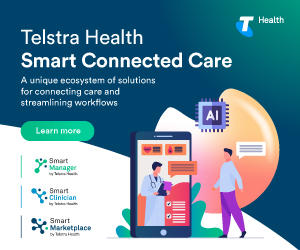Mental health and GP burnout
Feeling burnt out after a long year and still not ready to face 2018? You might be suffering from GP burnout.
MedicalDirector’s Clinical Adviser Charlotte Middleton takes a look at the impact of mental illness on general practice in Australia, how this links to GP burnout, and how she manages this in her own practice.
Mental illness in healthcare
The topic of mental health within industry is contentious and challenging, particularly because as medical professionals we default to helping others, rather than helping ourselves. Recent stories of doctor suicide and the impact of mandatory reporting have spurred the conversation in industry, but is anything actually changing?
While the stigma associated with mental health continues to diminish in the broader society, it is still very present within healthcare. This stigma, and the associated repercussions, act as a barrier to healthcare professionals admitting when they need help.
As someone who sees first-hand how debilitating mental health issues can be, I feel it’s important we understand and address the catalysts for the challenges faced by physicians specifically.
Addressing the stress
For a number of reasons, there is increased the pressure on GPs to see as many patients as possible in the working day, with little or no time to complete admin during these hours. This has ultimately extended the working day drastically for GPs, and negatively impacted the work-life balance for practitioners.
In its position statement on the health of doctors, the RACGP acknowledges that it is widely recognised that well-balanced and healthy doctors are able to provide higher quality patient care. In the same statement, the College advises adopting a balanced lifestyle, something everyone should be striving for. Importantly for GPs, there is a need to allow ourselves to do just that. We enter the field to help others and this often overrides balance. If we can recognise this and take responsibility for instilling better balance in our own lives we can start to change the intrinsic link between the profession and stress, which leads to burnout.
Addressing the stigma
The ongoing stigma within industry comes as a surprise to no one. As professionals, GPs are expected to remain cool, calm and collected at all times, and for good reason. However, in the current healthcare landscape the pressures on GPs are shifting and becoming less sustainable.
The same RACGP position statement I referred to earlier also references developing communications strategies to manage stigma and innuendo that may negatively impact the return to work after a mental illness. We need a develop a new mind-set, so that when healthcare professionals take time out of their chosen field for mental health reasons they can return to work without judgement. This is not an unprecedented, we have seen many other professions take a more pragmatic approach to workforce mental health. As an industry we can use their learnings to get it right and empower healthcare professionals to seek help when needed.
As healthcare professionals, we know early intervention is key in managing mental health. If we can work to address balance and irradiate stigma we can prevent and intervene faster.
With World Mental Health Day just around the corner, it’s important we take the opportunity to discuss strategies to improve balance in the profession, and manage mental health in a far more pragmatic manner.









